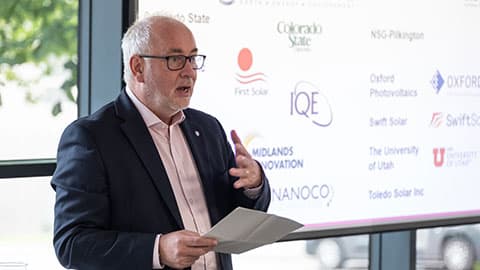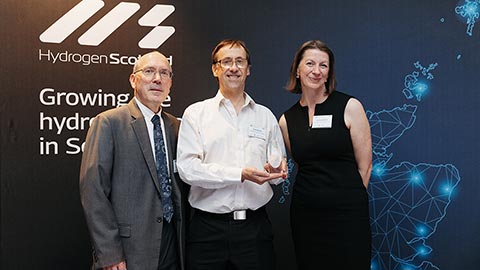A low cost, high capacity, smart residential distribution network enabled by SiC power electronics

This project looks at raising the residential phase voltage from 230 V to 350 V in order to increase the capacity on the existing cables (cables are rated at 600 V).
Our Aim
Changes to the way energy is generated/consumed worldwide is having a serious impact on residential grids, which lack sufficient capacity & flexibility to cope with the increasing use of low-carbon technologies - specifically Electric Vehicles, Heat Pumps, & Renewable Energy Sources such as PV panels. The current solution is to upgrade the underground cables, which is both expensive and disruptive to the public and businesses. This Innovate UK/EPSRC funded project looked at the novel solution of stepping-up the cable voltage from 230V to 350V (existing cables are rated at 600V). This increases the power throughput of the existing cable up to 150%. Then, a high efficiency 20kVA, AC/AC Power Electronic Converter (PEC) step-down the voltage back to 230 V at each house. The aim of the project is therefore to help provide a lower cost method to enable an increased take-up of sustainable, clean, low-carbon technologies.
Our Research
The project used load-flow and residential energy use modelling software to develop a power rating for the converter. This was then followed by detailed circuit simulation of a novel AC-AC chopper circuit, prototyping and testing in our laboratory using a high-speed oscilloscope, voltage and current probes to assess the performance of the converter.
Our Outcomes
Low-loss and high switching frequency were the prime objectives of the design in order to achieve the high-power density needed to house the converter in an electricity meter box. However, it was found that the packaging used for current SiC devices was not suitable for the high-switching frequency required for the design. This led to a change in design to a modular converter using GaN devices, where a 2.5 kW, 250 kHz module was successfully demonstrated.
This was one of the first projects to successfully demonstrate the exploit the high-speed and low-loss of GaN transistors in a novel, practical design, which is enabling the uptake of new greener technologies within the electricity grid


